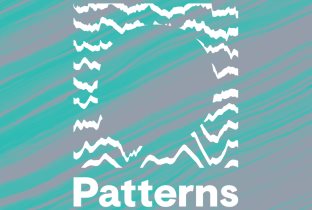By Louis Johnson – Comment Sub-Editor
Why should we value music? In an age of identity politics where empathy appears to have been cast to the dustbin of history; music allows us to gain much needed perspective. Musicians act as organic intellectuals yet politicians are forced to be the exact opposite. We must seek truth in songs not slogans.
Music can help us regulate our emotions, we surely all love a sad song to induce a tear or two when we’re down in the dumps. Well this is because you are empathising with the artist, you feel their pain like yours. Multiple studies have confirmed this link between music and empathy; a problem shared is a problem halved after all.
Many of us are constantly listening to music (I even sleep with headphones in), it is no surprise then that our politics can be heavily influenced by the lyrics we are continually digesting. Personally, I worry that without music my outlook may have been drastically different.
Before we were able to access almost any variety of music via streaming sites, my tastes were confined to the shallow depths of my parent’s CD collection. Since then though, sites like YouTube, and apps such as Spotify and Apple Music have allowed us to broaden our palates considerably. This is where us and the older generations differ, we have such a variety of music (and therefore perspectives) at our fingertips and we must not underestimate this privilege.
Rage Against the Machine were a band that were integral to putting my understanding of contemporary political and economic issues into perspective. As a young man there is only one emotion that you are taught you can express, and that is anger. Listening to their music and lyrics really helped me to channel this emotion.
‘Bulls on Parade’ and its aggressive sound instantly drew me in, and like many of you may do for your favourite songs, I instinctively learnt the lyrics from listening to it on loop. The lyrics taught me that we should look further than the petty soundbites of modern politicians and their hollow arguments. Politics often oversimplifies very complex socio-economic issues; it does not give us the full picture, but music can help us piece it together.
Zack de la Rocha (of Rage Against the Machine) taught me that ‘what we don’t know keeps the contracts alive’. This powerful lyric points to the convenient lies which plague our political plight and obscure the harsh truths of our reality. From that young (R)age, I knew that I too should ‘Wake Up’ and throw my ‘fist in the air in the land of hypocrisy’.
But music did not just help me understand my anger, it also allowed me to accept my vulnerability. Having become increasingly disaffected in a society which cares little for emotional wellbeing, I sought solace in listening to The Smiths.
Yes, I know, Morrissey is hardly the standard bearer for political correctness. But, his lyrics did not promote the political message that we see him so grossly espousing today. Though I do struggle to listen to Morrissey nowadays, his lyrics, rather ironically, for me led to a rejection of hegomonic gender norms. They helped me to dismantle to idea of what a ‘boy’ should be and to accept my emotions.
Empathising with their lyrics helped me to realise that the idea of being ‘a man’ was constructed and that it is not ‘nature’ that ‘will make a man of me’. I realised the idea of being a man, a strong and emotionless creature, was unachievable. Morrissey’s lyrics dismantled masculinity, and this cannot be overlooked, he said something that politics couldn’t.
In an era where politicians are highly glamorised and think very carefully about who their message is directed at, music stands in stark contrast. Music is honest, it is real, it is tangible, and in most cases, it does not care whether you like it or not. For this reason, I believe we should not be looking at politicians to direct us, we should be looking at ourselves. Music allows us to do this through empathy.
It’s clear to me that society was not set up to everyone’s benefit and it seems obvious that the richer you are the easier it is to make money; this is something that is true everywhere, but we accept it as a necessary evil. We should not accept this though, and listening to different artists’ perspectives from different times allows us to debunk the hollow idea that society is ‘improving’ when inequality, domestically, has risen drastically since the 1970’s.
Look no further than UK rap to see what lurks under the surface of British society. For me, Fliptrix sums up reality for most individuals in his song ‘Patterns of Escapism’ showing that, in a society of such mass consumption, abuse of drugs and alcohol is the only perceived means of escape. Snowy’s ‘Outburst002’ on Manga’s album, Outburst From the Outskirts, further challenges the idea of ‘normality’ and highlights the pressure to conform in an increasingly critical society.
Listening to music from the UK over time also allows us to contextualise our lives. Just in case you thought that pre-Brexit Britain was a political utopia, Jehst’s England (2011) emphasizes the same problems we see today. Stressing the need to ‘stack chips’ his relentless flow effortlessly dismantles the unfair workings of British society and how they are inherently linked to our history. I’d recommend this song to anyone interested in understanding British politics from a different perspective.
Music helps us empathise, and whether you like it or not, it is unapologetically intersectional. Politics on the other hand does not give us these necessary perspectives. For this reason, I urge you to listen to more music, listen to the lyrics, feel the emotion of the artists and have an eclectic point of view; come to your own conclusions and don’t let politicians tell you how to think.
Image credit: Penner




